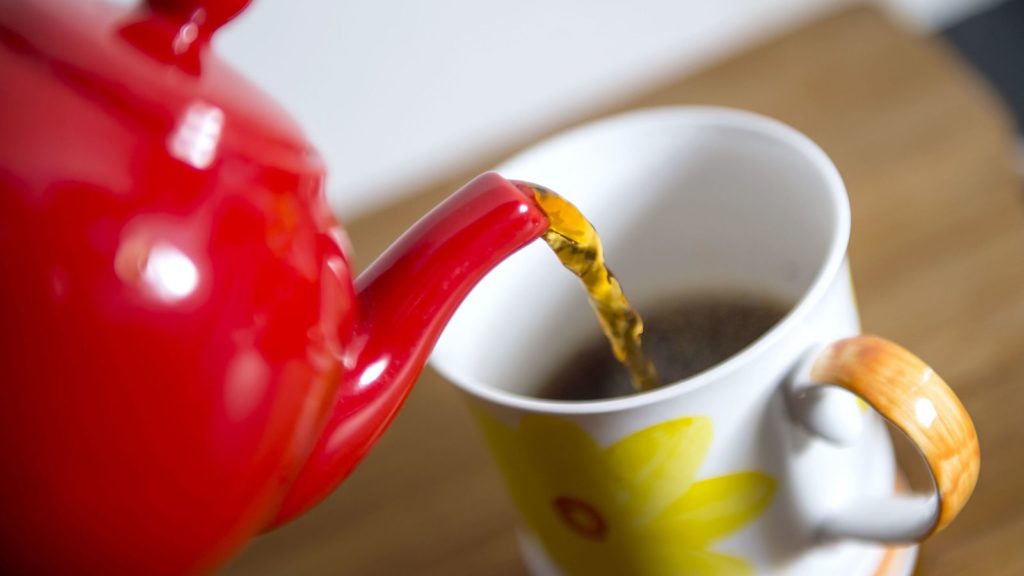Drinking at least two cups of tea a day protects your heart and helps you live longer, study suggests | Science & Tech News

Tea drinkers who consume more than two cups a day are likely to live longer than those who don’t drink any, a new study has suggested.
The findings, published in the Annals of Internal Medicine, concluded that the positive effects appear unaffected by whether the tea is taken black, with milk, with sugar, the temperature it’s drunk, or by genetic variants influencing the rate at which people metabolise caffeine.
Researchers from the National Institutes of Health used data from the UK Biobank, which saw 85% of the half a million men and women, aged 40 to 69, report that they regularly drink tea.
Of those, 89% said they drank black tea.
The study was conducted with a questionnaire answered from 2006 to 2010 and followed up over more than a decade.
It found that compared with those who do not drink tea, the regular consumption of black tea (the most widely consumed tea in Europe) was associated with a modest reduction of between 9% and 13% in mortality over 10 years in a middle-aged, mostly white, adult general population, especially in terms of cardiovascular disease.
Fernando Rodríguez Artalejo, professor of preventive medicine and public health at the Autonomous University of Madrid, described the research as representing “a substantial advance in the field”, saying most studies had been done in Asia, where green tea is the most widely consumed, and the few outside Asia were “small in size and inconclusive in their results”.
He said the study does not definitively establish that tea is the cause of the lower early mortality of tea drinkers, because it cannot exclude that this is down to other health factors associated with tea consumption.
Another question which remains unanswered is whether people who do not drink tea should start doing so to improve their health.
He said: “Studies should be done with repeated measurements of tea consumption over time and compare the mortality of those who do not consume tea on a sustained basis with that of those who have started to consume tea or have increased their consumption over time, and those who have been drinking tea for years.”

Recent Comments